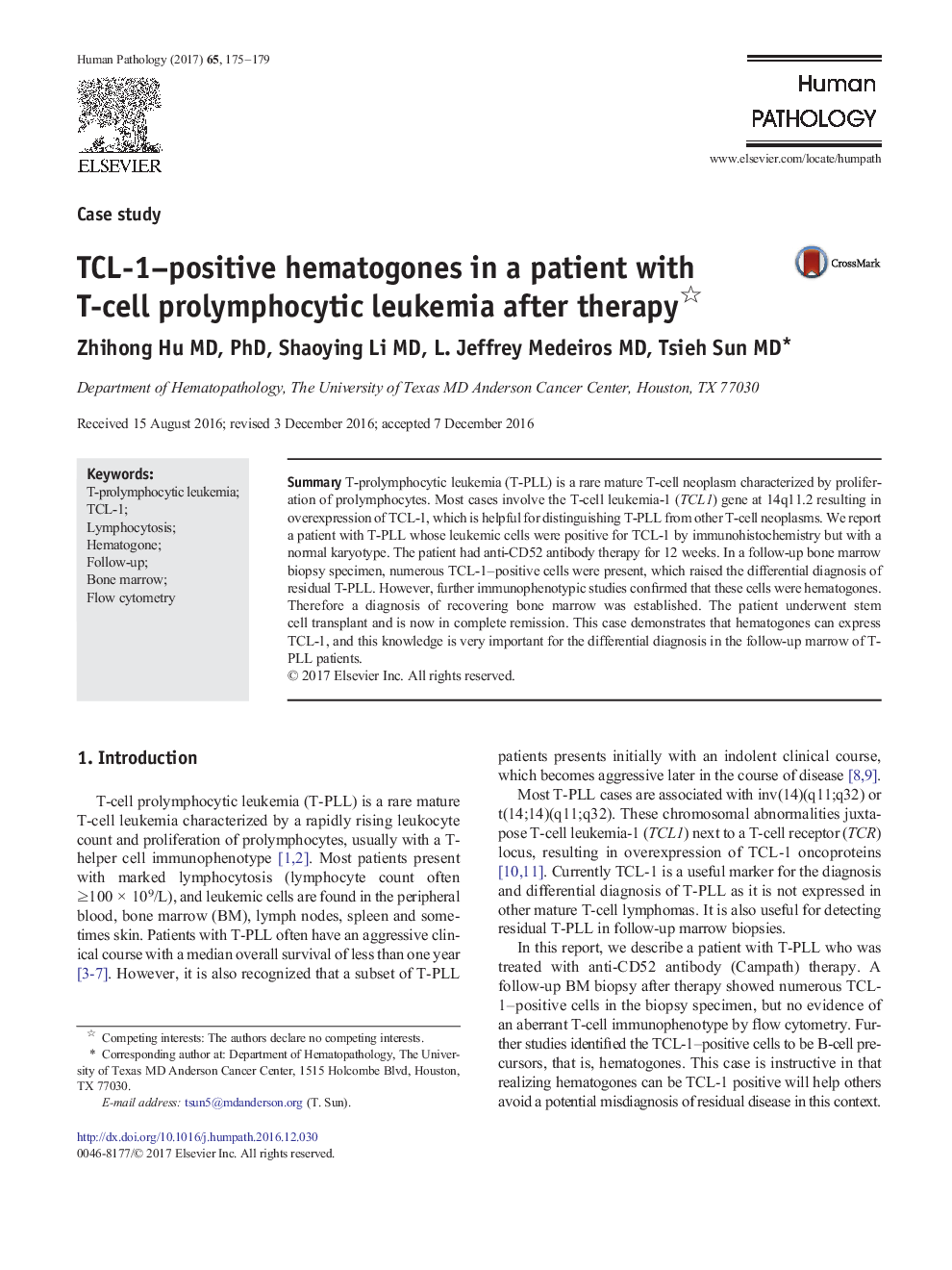| Article ID | Journal | Published Year | Pages | File Type |
|---|---|---|---|---|
| 5716336 | Human Pathology | 2017 | 5 Pages |
â¢Presence of TCL-1 overexpression is a useful marker for diagnosis of T-PLL.â¢TCL-1 can be expressed in hematogones.â¢TCL-1 is very important for differential diagnosis in follow-up marrow of T-PLL patients.â¢Complex chromosomal aberrations are frequently seen in T-PLL.â¢However, a normal karyotype cannot preclude a diagnosis of T-PLL.
SummaryT-prolymphocytic leukemia (T-PLL) is a rare mature T-cell neoplasm characterized by proliferation of prolymphocytes. Most cases involve the T-cell leukemia-1 (TCL1) gene at 14q11.2 resulting in overexpression of TCL-1, which is helpful for distinguishing T-PLL from other T-cell neoplasms. We report a patient with T-PLL whose leukemic cells were positive for TCL-1 by immunohistochemistry but with a normal karyotype. The patient had anti-CD52 antibody therapy for 12 weeks. In a follow-up bone marrow biopsy specimen, numerous TCL-1-positive cells were present, which raised the differential diagnosis of residual T-PLL. However, further immunophenotypic studies confirmed that these cells were hematogones. Therefore a diagnosis of recovering bone marrow was established. The patient underwent stem cell transplant and is now in complete remission. This case demonstrates that hematogones can express TCL-1, and this knowledge is very important for the differential diagnosis in the follow-up marrow of T-PLL patients.
